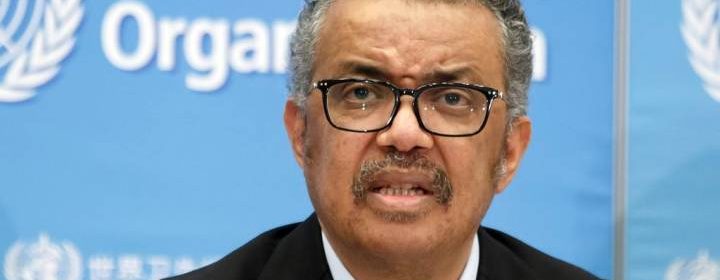Coronavirus: WHO agrees to independent probe of how it handled pandemic

The World Health Organization bowed to calls Monday from most of its member states to launch an independent evaluation of how it managed the international response to the coronavirus, which has been clouded by finger-pointing between the U.S. and China over a pandemic that has killed over 300,000 people and levelled the global economy.
The “comprehensive evaluation,” sought by a coalition of African, European and other countries, is intended to review “lessons learned” from WHO’s co-ordination of the global response to COVID-19, but would stop short of looking into contentious issues such as the origins of the new coronavirus. U.S. President Donald Trump has claimed he has proof suggesting the coronavirus originated in a lab in China while the scientific community has insisted all evidence to date shows the virus likely jumped into humans from an animal.
WHO’s normally bureaucratic annual assembly this week has been overshadowed by mutual recriminations and political sniping between the U.S. and China. Trump has repeatedly attacked WHO, claiming that it helped China conceal the extent of the coronavirus pandemic in its early stages. Several Republican lawmakers have called on WHO Director-General Tedros Adhanom Ghebreyesus to resign.
U.S. Health and Human Services Secretary Alex Azar said Monday it was time to be frank about why COVID-19 has “spun out of control.”
“There was a failure by this organization to obtain the information that the world needed and that failure cost many lives,” Azar said. Speaking hours after Chinese President Xi Jinping announced China would provide $2 billion to help respond to the outbreak and its economic fallout, Azar said the U.S. had allocated $9 billion to coronavirus containment efforts around the world.
[ Sign up for our Health IQ newsletter for the latest coronavirus updates ]
Tedros said he would launch an independent evaluation of WHO’s response “at the earliest appropriate moment” — alluding to findings published Monday in a first report by an oversight advisory body commissioned to look into WHO’s response.
The 11-page report raised questions such as whether WHO’s warning system for alerting the world to outbreaks is adequate, and suggested member states might need to “reassess” WHO’s role in providing travel advice to countries.
The Trump administration has claimed that WHO criticized a U.S. travel ban that Trump ordered on people arriving from China.
Trump ordered a temporary suspension of funding for WHO from the United States — the health agency’s biggest single donor — pending a review of its early response. The advisory body, echoing comments from many countries, said such a review during the “heat of the response” could hurt WHO’s ability to respond to it.
Xi said China supports the idea of a comprehensive review of the global response to COVID-19 “after it is brought under control,” and said it should be “based on science and professionalism led by WHO, and conducted in an objective and impartial manner.”
Tedros emphasized that WHO declared the coronavirus outbreak to be a global health emergency on Jan. 30, its highest level of alert, at a time when there were fewer than 100 cases outside of China. In the following weeks, WHO warned countries there was a narrowing “window of opportunity” to prevent the virus from spreading globally.
During the first few months of the outbreak, WHO officials repeatedly described the virus’s spread as “limited” and said it wasn’t as transmissible as flu; experts have since said COVID-19 spreads even faster. It declared the outbreak to be a pandemic on March 11, after the virus had killed thousands globally and sparked large epidemics in South Korea, Italy, Iran and elsewhere.
Source: Read Full Article

